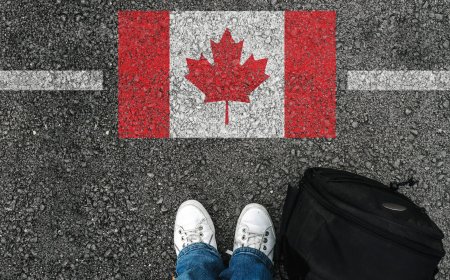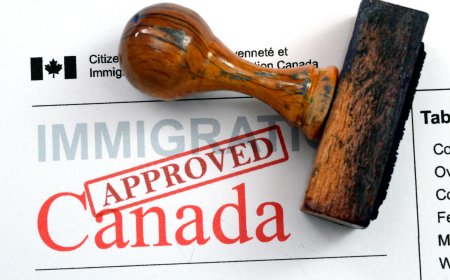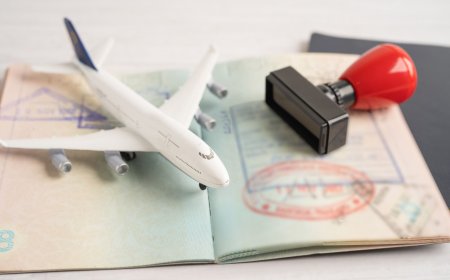Canada Parent & Grandparent Immigration Numbers Increasing | Canada Immigration Updates
Immigration to Canada under the Parents and Grandparents Program (PGP) gained momentum in March, with the number of new permanent residents rising by five percent compared to February. In March, Canada welcomed 2,005 new permanent residents under the PGP, up from 1,910 in February and significantly more than the 1,840 in January, according to the latest data from Immigration, Refugees and Citizenship Canada (IRCC).

This increase in PGP immigration is notable against a backdrop of an overall downward trend in immigration to Canada, with the total number of new permanent residents falling for the second consecutive month, dropping another 11 percent in March to 34,785 from 39,090 in February.
By the end of the first quarter, IRCC data showed that Canada had received 5,765 new permanent residents under the PGP this year, a decrease of 14.9 percent compared to the 6,775 during the same quarter last year. Based on the rate of PGP immigration during the first three months of this year, Canada could welcome 23,060 parents and grandparents as new permanent residents in 2024, down 18.5 percent from 28,305 last year.
Canada’s most populous province, Ontario, saw the highest number of arrivals under the PGP in the first quarter of this year, with 2,855 parents and grandparents settling there. Other provinces and territories attracted the following number of new permanent residents under the PGP during those three months:
- Newfoundland and Labrador – 15
- Prince Edward Island – 0
- Nova Scotia – 40
- New Brunswick – 25
- Quebec – 375
- Manitoba – 215
- Saskatchewan – 170
- Alberta – 1,085
- British Columbia – 985
- Yukon – 0
- Northwest Territories – 0
- Nunavut – 0
Among the provinces, Nova Scotia experienced the largest percentage increase in PGP immigration in March, with the number of new permanent residents rising by 50 percent. Conversely, New Brunswick saw the largest percentage drop, with PGP immigration decreasing by 66.7 percent in March compared to February.
Growing Targets for Total Immigration to Canada
Despite the current fluctuations, Canada has ambitious targets for total immigration in the coming years. Under the 2024-2026 Immigration Levels Plan, Canada aims to welcome 485,000 new permanent residents in 2024, 500,000 in 2025, and another 500,000 in 2026. This would total 1.485 million immigrants over three years.
Sponsorship Details and Requirements
Under the PGP, applicants must pay $1,050 to sponsor a parent or grandparent, and the process can take up to 27 months, including the time needed to provide biometrics. Once a Canadian citizen or permanent resident has submitted an interest in sponsoring these relatives, they receive an Invitation to Apply (ITA) and must submit two applications: a sponsorship application and a permanent residence application.
Eligibility and Financial Requirements
To be eligible to sponsor a parent or grandparent, the sponsor must meet several criteria, including receiving an ITA, being at least 18 years old, residing in Canada, and having sufficient funds to support the sponsored individual. Sponsors must promise to financially support the sponsoree for 20 years, starting from the day they become a permanent resident. This includes repaying any provincial social assistance the sponsored family members receive during that time.
Application Process and Documentation
Applicants must submit a statutory declaration form and a consent form to disclose personal information. Once this stage is complete, they must submit a web crisis form for each family unit, including the Group 1 applicant and their family members. Each person listed in the statutory declaration form will receive a unique web reference code. After receiving the code, applicants should submit their final TRV application quickly, as the code does not guarantee a space.
IRCC's Commitment to Keeping Information Current
IRCC emphasizes the importance of keeping application information up to date, including changes in relationship status, birth or adoption of a child, death of an applicant or dependant, and contact information. Applicants are responsible for updating their information themselves to avoid delays in processing.
Final Steps and Approval
Once the IRCC begins processing the application, applicants receive an application number and an acknowledgment of receipt. The IRCC then assesses both the applicant’s eligibility as a sponsor and the person being sponsored for permanent residence. If the sponsor is deemed ineligible, they can choose to continue processing the application for permanent residence, forfeiting all fees paid, or withdraw the application and receive a refund minus the $75 sponsorship fee.
Once approved, sponsored individuals must provide documents such as medical exam results, police certificates, and biometrics. Biometric information must be provided within 30 days of receiving a request letter from the IRCC. The IRCC's ongoing efforts to facilitate family reunification through the PGP reflect Canada's commitment to supporting family ties while managing immigration effectively.
What's Your Reaction?
 Like
0
Like
0
 Dislike
0
Dislike
0
 Love
0
Love
0
 Funny
0
Funny
0
 Angry
0
Angry
0
 Sad
0
Sad
0
 Wow
0
Wow
0






































































